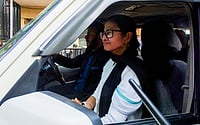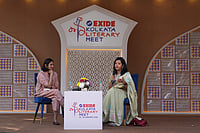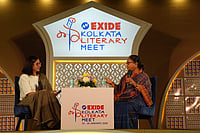West Bengal chief minister Mamata Banerjee’s tussle with the Election Commission of India (ECI) and the central paramilitary forces, whom she has accused of working at the behest of the BJP, has entered a crucial phase. She stepped up her campaign after the death of four voters in Sitalkuchi, Cooch Behar, on April 10 and the ECI’s April 12 decision to ban her from campaigning for 24 hours for an earlier comment that the poll panel deemed was in violation of the model code of conduct.
On April 13, the day she was banned, Mamata spent the day in a dharna at the Esplanade area in the heart of Calcutta in protest. She was back campaigning by 9 pm, an hour after the ban ended. The Trinamool Congress has insinuated that the ECI’s decision against her reflected how the BJP, increasingly scared at the prospect of a defeat, was using the electoral body.
TMC Rajya Sabha MP Derek O’Brien wrote a series of tweets protesting the ban. One of them said, “EC stands for Extremely Compromised”; another went, “Always knew we were winning Bengal.” Yet another declared, “When you can’t beat us, you ban us.” The party’s Lok Sabha MP Kakoli Ghosh Dastidar, too, wrote in a tweet Mamata was targeted because the BJP had lost in the first four phases.
While Mamata spoke to the family of the deceased in Sitalkuchi over phone from Calcutta on April 11, the TMC has already helped erect a martyrs’ column in Cooch Behar in memory of those killed in the firing by CISF personnel. The administration claimed that CISF men opened fire in self-defence after being attacked. Local residents vehemently refute the claim.
According to political analyst Biswanath Chakraborty, the twin incidents of the firing and ban on Mamata would hold the TMC in good stead in the coming phases as Muslim votes—the dead were all Muslims--were likely to further consolidate in its favour. “Due to this, the prospect of the Congress may suffer in North Bengal, while the prospect of the Indian Secular Front (ISF) is likely to suffer in the south,” he says. The ISF is part of the Left-Congress alliance.
Of the state’s 294 Assembly seats, elections have been conducted in 135 in the first four phases. Notably, of the districts going to the elections in the coming four phases are Malda, Murshidabad and Uttar Dinajpur, the three Muslim-majority districts in West Bengal. These districts had remained Congress bastions even till the 2019 Lok Sabha elections, when a split in Muslim votes between the Congress and the TMC helped the BJP secure two of the six Lok Sabha seats. The Congress and the TMC bagged two each.
This time, the BJP is hoping for a similar split, especially in Malda and Uttar Dinajpur, where Muslims and Hindus constitute an equal share of the population. But further consolidation of Muslim votes towards the TMC can change equations in the three districts, that have a total of 42 assembly seats.
By Snigdhendu Bhattacharya in Calcutta


























